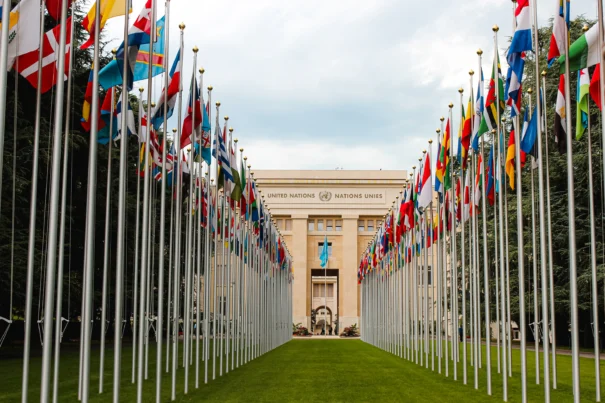
Photo by Mathias Reding
In a letter to the UN, the NGO Working Group on Women, Peace and Security – expressed the growing concern about how the international community lacks the “necessary resolve to defend and advocate for the human rights of Afghan women and girls.”
This will be the third Doha meeting, taking place in Doha, Qatar on June 30 and July 1st.
The letter was signed by Amnesty International, Global Network of Women Peacebuilders, and Human Rights Watch among several others.
The NGO Working Group on Women, Peace and Security, states that Doha III offers an opportunity to show Afghans that their human rights are not just a political bargaining chip, “but the foundation on which the future of their country depends.”
Moreover, the Afghanistan Human Rights Center (AHRC) in a statement on Friday, called for the “inclusive and human rights-centered agenda in the upcoming UN meeting of Special Representatives and envoys on Afghanistan in Doha. The AHRC calls for compliance with Security Council resolution 2681 which demands the full inclusion of women and girls in Afghanistan.
It may seem hard to believe that in the past four months since the last Doha meeting, the Gender Apartheid regime, already draconian and “unparalleled globally” has worsened, but this is the reality for Afghan women and girls. The over 100 edicts restricting women’s role in public life and freedom are increasingly enforced. Afghan women have even called for a boycott of negotiating with the Taliban until women’s rights are restored. The international community has failed to halt the Taliban and their systematic oppression of Afghan women and girls.
The Doha meeting should be focused on one central point: the rights of Afghan women and girls. Until these rights are fulfilled, the Taliban cannot negotiate on an international stage or worse, set the agenda for a meeting with the UN and other representatives.
The “credibility of the Doha process” depends not on Taliban participation but on setting a clear, transparent and non-negotiable set of principles, including and especially women’s rights and participation, says the NGO Working Group on Women, Peace and Security. They urge the UN to not concede to the demands of the Taliban that excludes women and does not address any of the glaring issues of gender oppression.
The Doha meeting should on the one hand, support Afghanistan’s peace, security, democracy and human rights for all citizens, and on the other hand, reject the normalization of Taliban policies and policies of gender apartheid and oppression.
The international community must directly address the human rights violations, including policies of Gender Apartheid, which go against treaties and international laws.
Humanitarian assistance should be focused on improving the situation for women, such as the return of women to work and pursue an education. Discussions on economic development “should be conditioned on the restoration of equal rights of women before the law.”
At this meeting, women, minority ethnic groups and human rights defenders must be present. This is crucial in ensuring that “the voices of those most affected by the Taliban’s policies are heard.”
Sources:
NGO Working Group on Women, Peace, and Security 06/08/2024; Afghanistan Human Rights Center (AHRC) 06/10/2024
